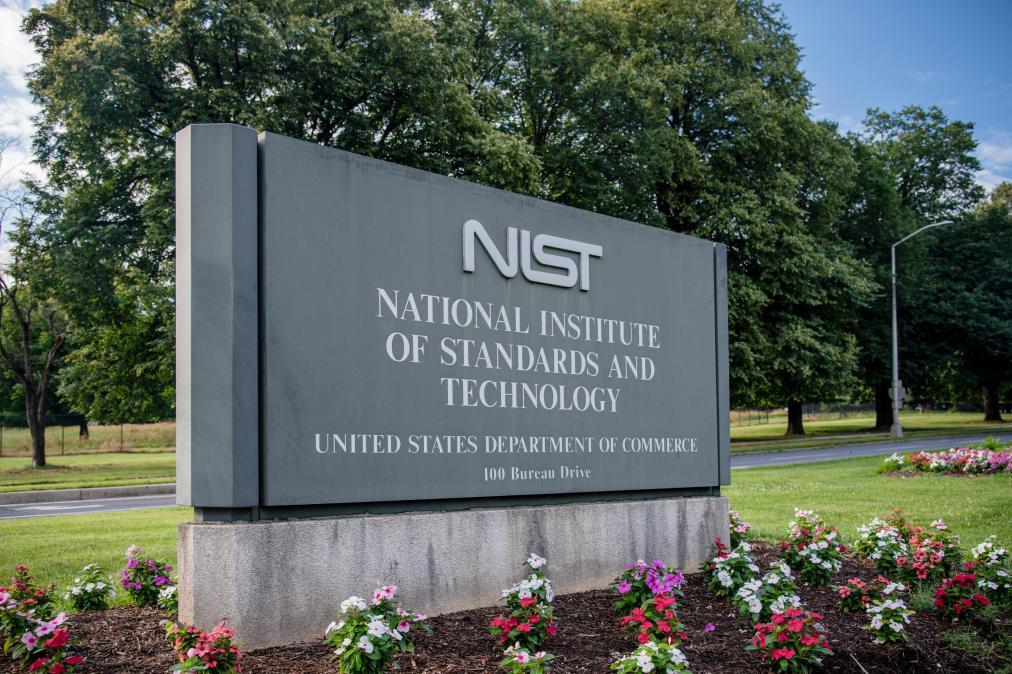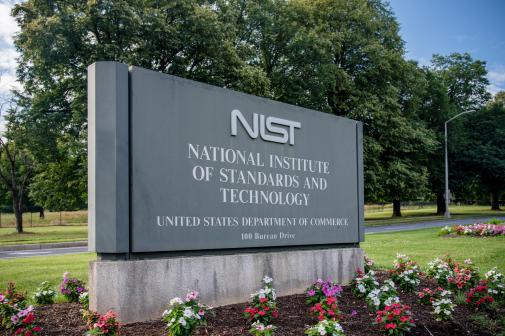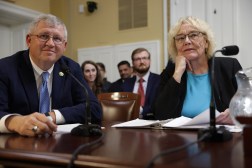Bipartisan bill to foster public-private partnerships for NIST reintroduced in House, Senate

A bipartisan bill that would establish a nonprofit foundation aimed at boosting private-sector partnerships at the National Institute of Standards and Technology was reintroduced in the House and the Senate on Tuesday.
The Expanding Partnerships for Innovation and Competitiveness (EPIC) Act would create a Foundation for Standards and Metrology at the Department of Commerce, which would be focused on fostering collaborations with academia, industry, and other organizations.
That new foundation would ultimately help supplement NIST’s funding and — according to a release shared with FedScoop in advance of the Wednesday announcement — make the path to commercializing technologies developed by the agency easier.
“Now more than ever, our federal science agencies need every tool to drive U.S. technology leadership,” Rep. Haley Stevens, D-Mich., co-sponsor of the House bill, said in a written statement. “The reintroduction of the EPIC Act ensures that NIST — a vital agency in emerging technology, standards, and manufacturing — has the resources to secure American leadership in the mid-21st century.”
In addition to Stevens, the reintroduced House bill is sponsored by Rep. Jay Obernolte, R-Calif., and the Senate version is sponsored by Sens. Chris Coons, D-Del., Todd Young, R-Ind., John Hickenlooper, D-Colo., and Deb Fischer, R-Neb.
While the legislation ultimately didn’t pass last Congress, it had the backing of four former NIST directors and multiple organizations, in addition to widespread buy-in on the House Committee on Science, Space, and Technology. It advanced out of that committee in June via voice vote.
“It is vital that America maintains its position as the world leader in science and technology,” Obernolte said in a written statement. “The creation of the Foundation for Standards and Metrology will assist in ensuring industry, non-profits, and academia receive the resources that they need to establish cutting-edge standards that enhances the economic security and prosperity of the U.S., which is why I’m proud to be a Republican co-lead on this critical legislation.”
At the time of its initial introduction, the proposed foundation structure was described as replicating similar nonprofits that support public-private partnerships at other science agencies such as the National Institutes of Health, Centers for Disease Control and Prevention, and U.S. Department of Agriculture.
In a written statement, Young emphasized the need for research and development in the country’s technology race with adversaries like China.
“Our bipartisan legislation will support these efforts by establishing an independent foundation to identify and foster innovative public-private partnerships across the country and strengthen the American economy,” Young said.
The reintroduced bill comes as the federal government is facing major changes under the Trump administration, including restructuring and mass firings of employees. Amid those changes, several tech organizations wrote to Commerce Secretary Howard Lutnick last month urging him to support the work of NIST, and specifically cited shared public-private efforts.
“As the Administration considers changes to personnel and programs to better align agencies with priorities, we encourage a strategy that leverages NIST’s leadership and expertise on standards development, voluntary frameworks, public-private sector collaboration, and international harmonization,” the organizations led by the Software & Information Industry Association wrote in that letter.
NIST’s funding has been in focus following a budget cut of roughly 12% to $1.46 billion in fiscal year 2024, which is the most recent year for regular appropriations. Congress opted to fund the government for fiscal 2025 with a full-year continuing resolution enacted last month.
“The EPIC Act reflects our ongoing commitment to creating a nonprofit foundation that will mobilize resources to support U.S. leadership on emerging technologies such as artificial intelligence, cybersecurity, biotech, and quantum computing,” Coons said in a written statement. “With strong bipartisan support across both chambers, this legislation represents a critical investment in America’s technological future.”






